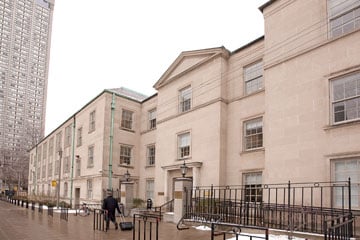
A tribunal dismissed an appeal brought by the Law Society of Ontario, which claimed a hearing panel was wrong to find a lawyer who was found in contempt of court had not committed professional misconduct.

A tribunal dismissed an appeal brought by the Law Society of Ontario, which claimed a hearing panel was wrong to find a lawyer who was found in contempt of court had not committed professional misconduct.
In 2015, the Supreme Court of Canada found lawyer Peter Carey in contempt of court for having breached a freezing injunction when he returned a client’s funds held in trust.
Despite this ruling, a hearing panel subsequently found that the lawyer had not committed professional misconduct as he did not intend to interfere with the administration of justice when he breached the court order.
The law society appealed the hearing panel’s, conclusion and a panel of four adjudicators with the Law Society Tribunal Appeal Division upheld the finding.
“ . . . [T]he Lawyer erred in judgment in returning trust money to his client in 2006, but did not engage in conduct that tended to disrespect or prejudice the administration of justice in a manner that brought discredit upon the legal profession,” said the decision in Law Society of Upper Canada v. Carey.
The hearing panel’s decision was a departure from a general rule that when a lawyer is found to be in breach of a court order and in contempt, it is normally enough to find they have committed professional misconduct. Lawyers say the decision shows a contempt order will not always automatically result in a professional misconduct finding by the law society.
Benjamin Zarnett, the lawyer who represented Carey in the appeal, says there is nothing in the decision that undermines the importance of lawyers having to comply with court orders and that the decision properly recognizes there can be unique circumstances in which a violation of a court order does not amount to professional misconduct.
“What I think the hearing panel and then the appeal panel said is one has to look at all the circumstances, and here, there were very compelling circumstances that made this conduct not professional misconduct,” he says.
Carey, a former partner at Fogler Rubinoff LLP who is now at Loopstra Nixon LLP, was found in contempt after returning a sum of money to a client from their trust account despite an injunction freezing those funds.
He had deposited $500,000 into the client’s trust account, and when the client then tried to get Carey to pay a creditor with those funds, the lawyer refused because of the injunction. But Carey then returned the rest of the sum, minus legal fees, to the client after being instructed to do so. The client disappeared with the money and a creditor sued Carey.
In that litigation, the creditor brought a motion requesting an order that the lawyer was in contempt of court for breaching the freezing injunction. A motion judge found the lawyer was in contempt, but the judge later reversed the finding and dismissed the creditor’s application after hearing further submissions.
The Court of Appeal reinstated the contempt finding, but it also agreed with the motion judge that the lawyer had not intended to breach the injunction or to undermine the administration of justice. When the Supreme Court affirmed that ruling, the law society started discipline proceedings against Carey.
A hearing panel dismissed the law society’s application after a two-day hearing.
The panel considered an affidavit from Alan Lenczner, a lawyer with experience in freezing injunctions, which said Carey’s actions were standard litigation practice at the time. Lenczner also said that had Carey sought his advice, he would have told the lawyer to do exactly as he did.
Jennifer Trehearne, one of the lawyers who represented Carey before the hearing panel, says the case reinforces that it is important for lawyers who find themselves in a situation where their ethical obligations are unclear to consult senior counsel and to document those efforts.
If there are ever any subsequent questions about whether the lawyer has breached obligations, they will then be able to demonstrate that they did their best to fulfil them, she says.
“An error in judgement is not enough to ground a finding of professional misconduct,” she says. “There has to be some serious or significant departure from professional standards, and I think that probably comes as some relief to all lawyers because I think there aren’t any of us who have not committed a mistake in the course of our practice.”
In the law society’s appeal of the hearing panel’s finding, counsel for the regulator argued that Carey should be reprimanded and that the panel had erred by finding facts that were different from those found by the Supreme Court. The law society also claimed that the hearing panel’s decision was unreasonable.
The appeal tribunal, however, found the facts in the hearing panel’s ruling did not deter from those of the Supreme Court.
Some lawyers are questioning why the law society may have pursued the matter to the length it did, considering what the facts were in the case.
“It seems like it would be a hopeless case to take to appeal on the basis of the evidence and the basis of the law,” says lawyer Matthew Wilton, who was not involved in the case but represents lawyers in LSO discipline matters.
A spokeswoman for the law society says no decision has been made with respect to a possible appeal to Divisional Court.